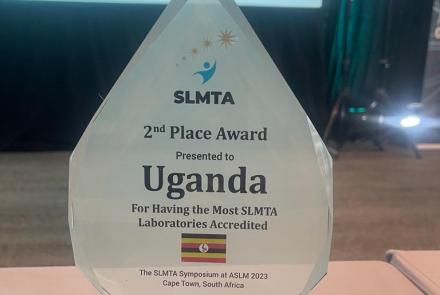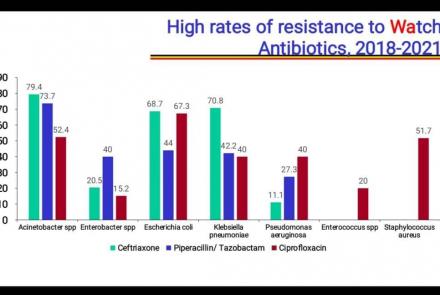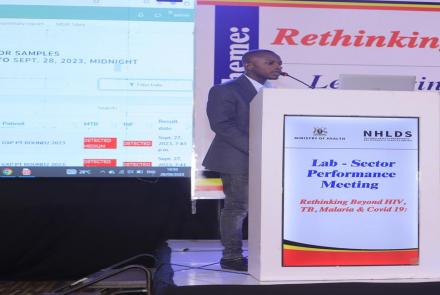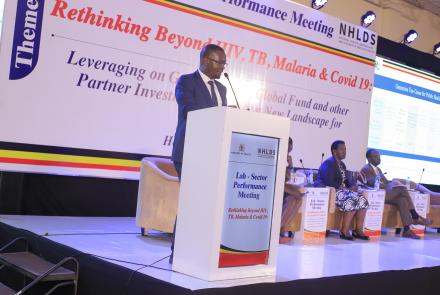Human Resource (HR) is the most valuable resource in the national health laboratory system. The Laboratory workforce is comprised of several cadres including laboratory managers, phlebotomists, technicians, scientists, pathologists and laboratory support staff. The laboratory workforce interfaces with a range of professionals including clinicians, public health officers, nurses, managers, staff working in the support services as well as the community. The World Health Organization (WHO) has recognized the critical shortage of laboratory professionals on the African continent. This has been attributed mainly to staff migration across sectors and countries as a result of poor remuneration and motivation. Institution of measures to attract and retain qualified, competent staff appropriate for all levels of the National Health Laboratory systems have been recommended to mitigate this challenge.
At the national level, the Ministry of Health Policy on Human resources for health acknowledges the importance of Human Resource, including the health laboratory workforce, and advocates for due prominence to be given to it and its related functions. The Policy also emphasizes that an efficient and effective health care system largely depends on the availability of carefully planned, effectively trained, equitably distributed and optimally utilized health workers. Laboratory services in Uganda are provided by pathologists, scientists, technologists, technicians and laboratory assistants. Microscopists and laboratory attendants who in the recent past, formed a significant proportion of the laboratory workforce were phased out during implementation of the 2010-2015 national health laboratory services strategic plan.
There are public and private institutions that train laboratory professionals at certificate, diploma, undergraduate and postgraduate levels. Despite the existence of the laboratory training institutions and the seemingly large number of different cadres of laboratory workforce produced every year, staffing of laboratory units continues to remain poor due to restrictive wages, inappropriate staffing norms and outdated scheme of service. Training of high-level laboratory specialists such as immunologists, toxicologists, mycologists, and histochemists is very limited, hence the lack of many of the specialized laboratory services in the country. Only a small portion of the laboratories in the national laboratory network meet the recommended staffing norms. Moreover, the staffing norms currently being followed have not been reviewed for a long time and therefore are not in line with current demands. Due to this acute shortage of human resource, Implementing Partners, with support from PEPFAR and other development partners have filled the gap by recruiting higher-level cadres at various levels of service delivery.
There is a pertinent need to absorb the trained pool of specialists in key areas to provide the capacity necessary for the National Health Laboratory Services. Although the National Scheme of Service is under review to address this concern, there is a need to fast track its approval and adoption to absorb all the available laboratory professionals. Besides, there is a need to plan and implement a national scheme for the continuous professional development of laboratory cadre-ship. In-service training programs and their co-ordination have greatly
9
improved over the last couple of years. A training master plan was developed in 2013 and this has guided stakeholders fairly well in implementing their training programs. Standard curricula have been developed in many thematic areas e.g. HIV testing, TB microscopy, Integrated Disease Surveillance and Response, SLMTA, Logistics management, but similar curricular are yet to be developed in a few other critical areas like biorisk management, diagnosis of opportunistic infections, ethics and professional code of conduct and global health security agenda. There is also a need to intensify the provision of courses in laboratory management and leadership for laboratory managers at all levels.






